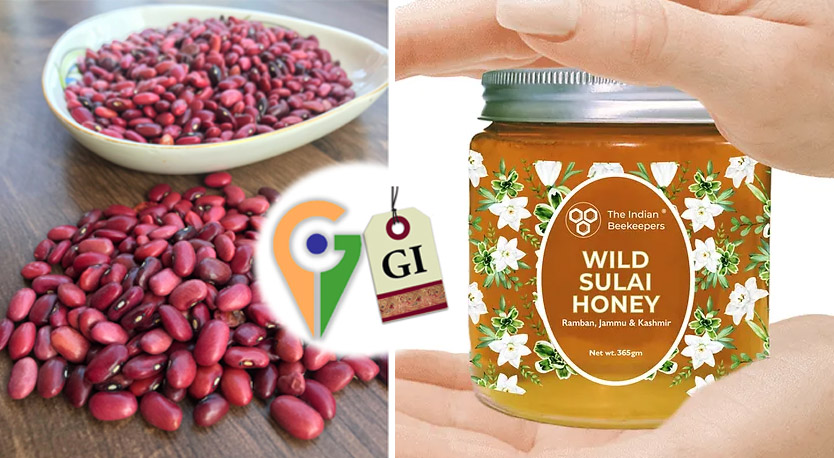Bhaderwah’s Rajmash and the Sulai honey from Ramban, Jammu and Kashmir, have recently been granted Geographical Indication (GI) tags. The renowned Bhaderwah Rajmash is a unique red kidney bean variety known for its smaller size and distinctive texture. It has a different flavour, and this particular rajmash variety is grown as an intercrop alongside maize in the picturesque Bhaderwah. In contrast, Sulai honey is a premium and exotic honey variety with exceptional taste. It owes its origin to Sulai plants found in the captivating landscapes of Ramban.
GI tags serve as unique product differentiators, support brand building, generate local employment opportunities, promote tourism, preserve traditional knowledge and cultural expressions, and contribute to biodiversity conservation. In today’s world, tourists are increasingly curious about witnessing the processes behind unique products like Bhaderwah’s Rajmash farming or the production of Sulai Honey in Ramban. Proper projection and promotion can create a niche in tourism for the area. Short promotional films, even as brief as 20 seconds, have the potential to generate significant interest and curiosity. These represent just the tip of the iceberg, as professionals are there to launch these products on a larger scale. GoI has timely acknowledged the significance of GI tags and supported NABARD to play a crucial role in supporting pre-registration and post-registration activities for products seeking GI status. NABARD noticed the significant potential of handloom, handicrafts, and agricultural products in the UTs of Jammu & Kashmir and Ladakh, and it is actively involved in facilitating the GI registration process and subsequent initiatives.
The recent GI tagging of various products from different districts of UTs is just the beginning. Various government departments now have a substantial role to play in this initiative. The process involves providing support such as raw materials, improved farming techniques, packaging assistance, commercial production, and the promotion of these products not only within the country but also globally. It is crucial to raise awareness about how rajmash from Bhaderwah and Sulai Honey from Ramban are distinct from other varieties of rajmash and honey. The Jammu Tourism Department can significantly contribute to this effort, as they frequently promote tourism in other states by participating in different event. Exploring international collaborations with renowned international mall chains is another avenue to explore.
However, wisdom is to acknowledge that this is not an easy task for the farmers and locals involved in the entire process. For instance, in the case of these recently GI-tagged products, increasing production will be a formidable challenge. Immediate actions should include providing loans to expand existing agricultural areas and forming cooperatives to collectively promote their produce. Additionally, adhering to international packaging standards is essential. While all these endeavours will require time and effort, it’s imperative to initiate this work without delay. Each step in this process holds its significance, making team efforts invaluable in achieving success in this endeavour. GIs can indeed play a pivotal role in rural development by empowering local communities.
A notable recent change is the equitable treatment of all districts, allowing them the opportunity to highlight their unique products and produce. The government deserves commendation for recognising the necessity of GIs and taking proactive initiatives.
Trending Now
E-Paper


